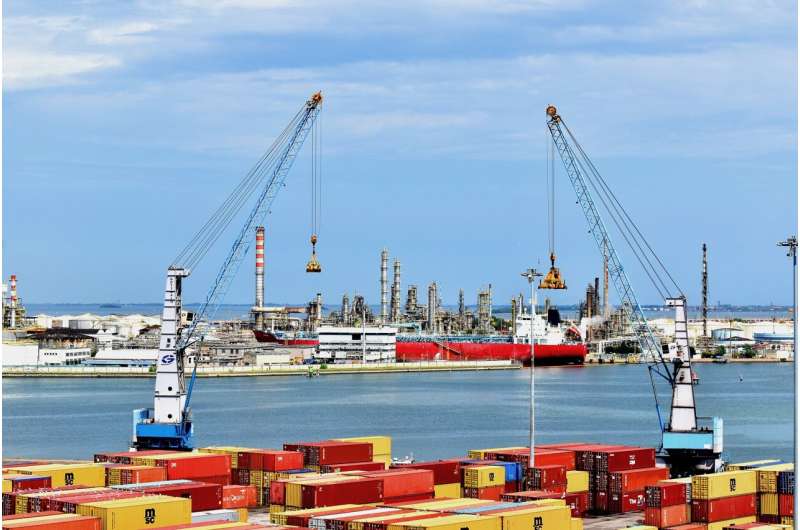New research highlights the effects higher environmental taxes have on offshore production

New research from Nottingham University Business School (NUBS) has investigated the effects of environmental damage and pollution intensity and has found that high environmental taxes can in fact reduce the offshore incentive—in particular, in the production of critical "intermediate goods."
Many product-focused companies decide to have their products manufactured offshore—for manufacturing or assembly in another country—typically because of lower wages and the cheaper cost of materials. This, along with the pollution haven hypothesis (PHH), which is the idea that companies move their pollution production to developing countries with weaker environmental regulations, has typically increased the incentive for offshoring.
For this new , published in the Journal of Environmental Economics and Management, the authors Takeshi Iida, from the School of Global and Community Studies at the University of Fukui, Japan, and Arijit Mukherjee, Professor of Industrial Economics at Nottingham University Business School, challenge the traditional view that higher environmental damage encourages offshoring.
The researchers considered a model in which a monopolist final goods producer, with the ability to produce a critical intermediate good for its final product, could offshore the intermediate goods to a competitive industry. However, the final product could not be offshored.
"Final goods" are also referred to as consumer goods and are items that do not require further processing and are produced for direct consumption by the end consumer, whereas an 'intermediate good' is a product used in the production of other goods.
For this framework in which a monopolistic domestic firm chooses offshoring, the main findings were that when both the production of intermediate goods and final goods create pollution, there is an inverted U relationship (a pattern where a relationship first increases at a decreasing rate, reaches a maximum and then decreases) between the tax rate and the firm's incentive for offshoring.
"The inverted U relationship between the incentive for offshoring and environmental tax creates a dilemma for the domestic country. Higher environmental tax due to higher environmental damage may not maximize domestic welfare, since it may encourage the domestic firm to produce the intermediate goods in the domestic country," says Mukherjee.
In summary, this analysis challenges the traditional view that higher environmental damage encourages offshoring, and offshoring can in fact be excessive or insufficient from the point of view of the domestic country.
More information: Takeshi Iida et al, Environmental taxes, offshoring and welfare: The effects of environmental damage and pollution intensity, Journal of Environmental Economics and Management (2024).
Provided by University of Nottingham





















